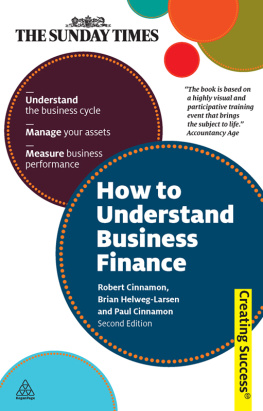
HOW TO FORECAST
A Guide for Business
To my wife, Margaret for her unwavering support
To the memory of James Morrell who started forecasting in 1955 and until his death in September 2000 dedicated his life to giving advice and assistance in business forecasting to help small and intermediate companies, who were unlikely to have a team of forecasters, or alternatively to give an independent view of company plans and to look ahead at least five and possibly as far as fifteen years ahead. In fact, his forecasts were taken by blue chip companies as well as smaller firms. He was always available to give advice by seminars or in-house consultations and assistance in forecasting matters, specializing in the Housing Market and Motor trades until his retirement in April 2000.
James Morrell waited until his retirement in April 2000 to write this book. His aim was to assist CEOs, Marketing Directors, Planners and Analysts to look ahead for at least five years; for planning budgets and marketing, bringing attention to the fact that nothing is decided without a forecast. He used no jargon, preferred short sentences with bold diagrams to give a clear message. So far as business is concerned he felt it essential to set out various scenarios and put odds on the possibilities in order to make the firm more flexible, more positive in its operations and with the final objective of greater efficiency, job satisfaction and ultimately better returns.
Margaret Morrell
HOW TO FORECAST
A guide for business
James Morrell
First published 2001 by Gower Publishing
Reissued 2018 by Routledge
2 Park Square, Milton Park, Abingdon, Oxon OX14 4RN
711 Third Avenue, New York, NY 10017, USA
Routledge is an imprint of the Taylor & Francis Group, an informa business
Copyright James Morrell 2001
James Morrell has asserted his right under the Copyright, Designs and Patents Act 1988 to be identified as the author of this work.
All rights reserved. No part of this book may be reprinted or reproduced or utilised in any form or by any electronic, mechanical, or other means, now known or hereafter invented, including photocopying and recording, or in any information storage or retrieval system, without permission in writing from the publishers.
Notice:
Product or corporate names may be trademarks or registered trademarks, and are used only for identification and explanation without intent to infringe.
Publishers Note
The publisher has gone to great lengths to ensure the quality of this reprint but points out that some imperfections in the original copies may be apparent.
Disclaimer
The publisher has made every effort to trace copyright holders and welcomes correspondence from those they have been unable to contact.
Typeset in Plantin Light by IML Typographers, Birkenhead
A Library of Congress record exists under LC control number: 2001033392
ISBN 13: 978-1-138-73180-6 (hbk)
ISBN 13: 978-1-315-18892-8 (ebk)
CONTENTS
James Morrell was more than the father figure of business forecasting. As this book makes abundantly and powerfully clear, he remained among its most convincing practitioners. Published posthumously, this fascinating work brings to life the special qualities which set Jimmy apart. He saw with total clarity that the future can only be read through deep understanding of the present, and that the present can only be understood on a foundation of thorough knowledge of the past.
His own combination of erudition and intuition is displayed on every one of these pages. He was a hard-headed witness of human frailty, and no Panglossian. To Jimmy, things were definitely not for the best in the best of all possible worlds: he never denied realities, pleasant or unpleasant, vile or good. One good outweighed much evil, however; taking the long view of human history, the conditions of human life, despite upheavals and horrors caused by nature and man, have improved wonderfully overall. This book carefully examines the reasons why this extraordinary advance might stop -and concludes that, on the whole, it is likely to continue.
It would be foolish and foolhardy to argue against this closely reasoned conclusion. But Jimmys careful observation of past and present led him, rightly, to be sceptical about mankinds ability to manage the planet and its innumerable sub-divisions. Coping with natural hazards alone presents enough challenges, but with few exceptions the risks confronting mankind are of its own creation. Not only has mankind created the problems of population growth, industrialization and the polluted environment, but its leaders have been singularly inept at dealing with these self-made threats.
As Jimmy argued, without an improvement in governmental capability and performance, the risks from these failures must become intolerable. Even where governments have been relatively successful notably, since 1945, in sustaining historically high economic growth they have wrestled unsuccessfully with the consequences. Here, the issue which especially concerns him is the potentially cancerous shortage of jobs, as technology reduces the demand for an increasing supply of labour. He was by no means sure that effective answers to unemployment would be found; and that reinforced his other reasons for expecting a slowdown in world economic growth as the 21st century progressed.
Recession cannot be ruled out, on this sobering analysis. But if the leading economic powers (which will include a China easily outstripping the USA) fail to collaborate effectively to counter those trends, recession could develop into long-drawn-out depression, with further serious social and political consequences. This warning element in the book makes Jimmy sound like a doom-sayer, but that is far from the truth. His essential, though qualified, optimism shines through its pages and their contemplation of mans insatiable progress, of the virtually limitless expansion of human knowledge and of humanitys equally limitless opportunities.
That emphasis on human powers and their potentially benevolent unfolding (for major instance, in lesser risk of international conflict and war) marks James Morrell as a radical humanist, as a worthy heir to the rich tradition of true British liberal values. Very high among those values is dispassionate fact-based analysis by thinkers who personally lack neither passion nor principle. Long years ago, these qualities drew me to Jimmy, as the ideal economic forecaster for a magazine (Management Today) which needed to discover what was really happening in business in order to help management achieve improved outcomes.
Like so many others who read his writings, heard his excellent addresses or benefited from his counsel, I only came to admire him more and more, as a professional and as a friend. Sad as we are to lose him, we can take some consolation in a far-ranging but penetrating book that serves admirably as James Morrells own, inspiring epitaph.
Robert Heller, Management Author
Every decision rests on a forecast a view of the future. We know from everyday experience that many of the forecasts we are obliged to make will prove mistaken. Yet this does not invalidate the case for basing decisions upon forecasts. We are obliged to formulate forecasts of some kind or other as a means of determining a future course of action.


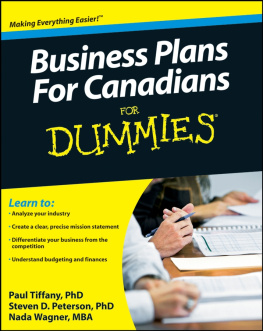
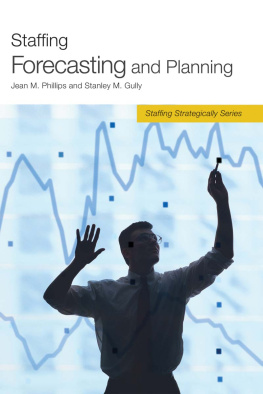


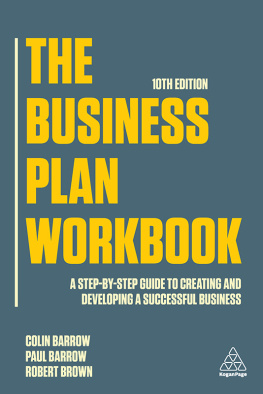
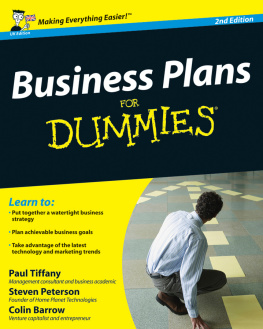
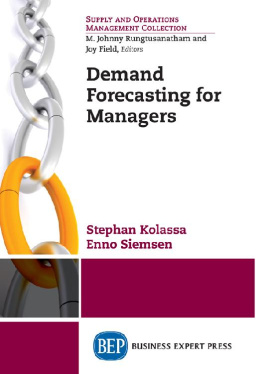
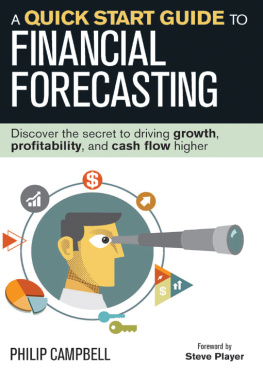
![Galit Shmueli - Practical Time Series Forecasting: A Hands-On Guide [2nd Edition]](/uploads/posts/book/82184/thumbs/galit-shmueli-practical-time-series-forecasting.jpg)
